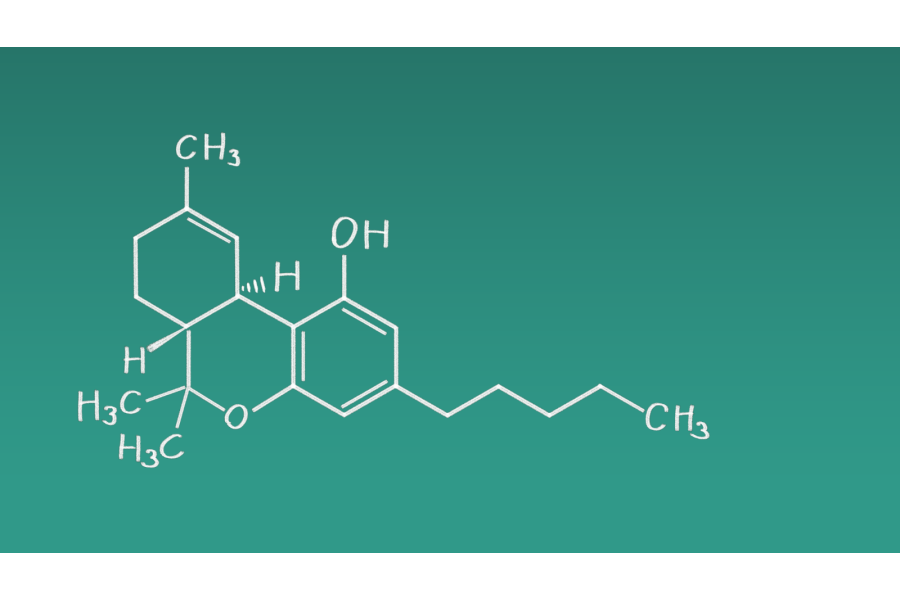Cannabis was used as a medicine for thousands of years but in the past century, its legal status has prevented it from being used as a prescribed medicine in many parts of the US. Within the plant, the two most commonly used cannabinoids are THC and CBD. The human endocannabinoid system (ECS) has receptors for these cannabinoids that help maintain homeostasis including pain and stress modulation. THC has specific medicinal benefits that can treat an array of symptoms because of its ability to interact with the endocannabinoid system.
Cannabinoids generally work well together and many products contain different ratios of THC and CBD. Although their combination can be a powerful medicine, some cannabinoids are better suited for certain symptoms and ailments. For example, seizures may require a higher CBD product. On the other hand, THC may be better suited for conditions that result in pain, sleep, spasticity, appetite and nausea problems. Here are several studies that examine THC and its medicinal benefits.
Chronic Pain
Thousands of Americans suffer from chronic pain, and it commonly occurs in conditions such as multiple sclerosis and neuropathy. In one double-blind, placebo-controlled study, researchers titrated THC doses to multiple sclerosis patients having muscle stiffness, spasms, insomnia and pain. The study showed that THC is superior in treating muscle stiffness.
Another study of patients with neuropathic pain and found that THC reduced the intensity of pain, improved sleep and was well-tolerated. A similar randomized, double-blind, placebo-controlled, crossover trial study demonstrated that THC significantly reduced pain and found evidence that THC medicines are an effective treatment for chronic pain in adults.
Researchers assessed THC-induced analgesia by performing brain scans on patients with chronic neuropathic pain and found that THC significantly reduced pain compared to placebo.
Sleep
There are many factors that can affect quality of sleep including nightmares, chronic pain and insomnia. In general, THC was found to help patients fall asleep and have better quality sleep.
In one study, nabilone, a synthetic version of THC, was used for treatment-resistant nightmares in patients with post-traumatic stress disorder (PTSD). Most patients (72%) experienced complete cessation of nightmares or reduced intensity of nightmares. Some patients noted improvement in sleep time, quality of sleep, and reduction of daytime flashbacks and night sweats.
Another randomized, double-blind study found that nabilone was superior to amitriptyline, a tricyclic antidepressant with sedative effects, in treating insomnia in fibromyalgia patients.
Spasticity
Spasticity is abnormal muscle tightness due to prolonged muscle contraction and commonly occurs in patients with multiple sclerosis, cerebral palsy, amyotrophic lateral sclerosis and metabolic diseases such as Krabbe disease. THC has medicinal benefits for many other muscle system functionality issues as well.
THC was found to be an effective treatment for spasticity in a randomized, double-blind, placebo-controlled study. At least 15-20mg per day of THC was required to have an effective therapeutic effect for spasticity. For another group of spasticity patients, 10mg of THC was effective in reducing spasticity.
Appetite
Cancer patients often struggle with lack of appetite due to cancer treatments like chemotherapy and tumor-suppressing medications. A randomized double-blinded pilot study of cancer patients with chemosensory alterations found THC improved and enhanced chemosensory perception. Premeal appetite also increased compared with placebo. Therefore, THC may improve food enjoyment and appetite for cancer patients.
More than half of advanced lung cancer patients experience anorexia, the lack or loss of appetite for food. A randomized, double-blind, placebo-controlled clinical trial assessed the effect of nabilone on the appetite, nutrition and quality of life of patients with advanced lung cancer. It found that after two months of treatment, calorie intake increased as well as quality of life. This trial suggests that THC may improve appetite for patients suffering with lack of appetite.
Nausea
Nausea is a common symptom experienced by cancer patients undergoing cancer treatments. It’s an uncomfortable symptom that can result in vomiting and lack of appetite. THC appeared to offer a significant reduction in vomiting and nausea in a study of patients taking antitumor drugs. A similar study with children undergoing cancer chemotherapy used THC and compared it to two other prescription drugs. THC was significantly more effective in treating nausea and vomiting. It was also found to increase appetite in some patients.
In conclusion, THC is a cannabinoid found in cannabis and is a form of medicine that may help patients with pain, sleep, spasticity, appetite and nausea.
Click below to see more research on medical cannabis.




